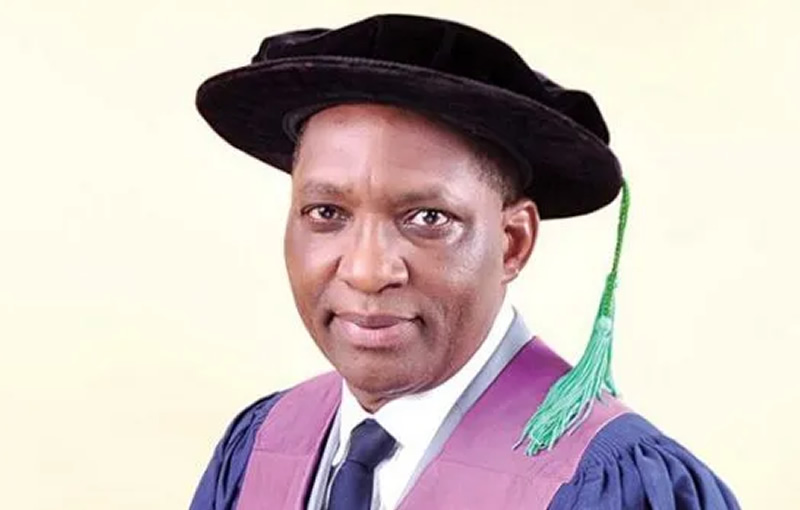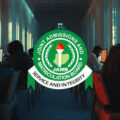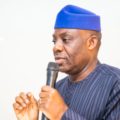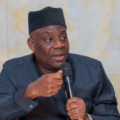Interview with Professor Adesegun Fatusi on Higher Education and Medical Education in Nigeria
Concerns Over the Federal Government’s Continuous Creation of Universities
What do you think about the nation’s development? A lot of individuals are criticizing the federal government’s ongoing creation of new universities.
I completely agree with those who are criticizing it that the federal government should cease creating universities in Nigeria because I find it incomprehensible. You’ve already struggled to provide sufficient funding for universities.
I discovered that the employees of a university that was only established a short time ago have gone on strike due to their lack of pay. Due to their lack of resources, existing operating schools are losing their accreditation. Therefore, I find it completely illogical that the federal government should keep founding institutions. However, the private concerns of states and individuals may be at a different level.
In other words, does the fact that Nigeria has so many universities imply that the percentage of graduates is sufficiently high? Or does it indicate that we have a sufficient quantity of graduates? No, is the response.
Addressing the Challenges in University Funding
What, in your opinion, can be done to address this?
What are you doing with four universities when you can’t fund them? I believe that states can carefully examine their needs to see what they have, so it would make more sense to see how you can invest in what you have already to expand their capacity rather than starting new universities.
The State of Health and Medical Education in Nigeria
What about the state of health and medical education in Nigeria?
The answer is “very good.” My evidence is that America will want our doctors, so why will you bother me to have my nurses? That is the best proof you could ask for regarding the caliber of our offerings. I am aware that Americans will not want to share our stuff because of who they are. However, they have experienced and witnessed that our health education is, in fact, beneficial.
“Taste it and see that the Lord is good,” as the Bible says. After tasting it, you can realize how effective our health teaching is. No, it doesn’t imply that everything is flawless. We have gaps that need to be filled, maybe three million of them.
Challenges in Medical Education and Professional Classifications
The first is the difference between our programs’ professional classifications and, you know, the mix of professionals.
For instance, we have offered medical courses for the past 70 years—more than 70 years—but our programs are centered in some regions and rejected in others. However, what about crucial courses like medical opticians?
There was no speech therapy program at UNIMED before we arrived, but we are aware that these programs are becoming more and more significant—sometimes even more so than medical ones.
At some point, we will all require rehabilitation because we are all getting older. We require rehabilitation as the globe continues to industrialize and have accidents.
The Need for Investment in Training Infrastructure
Thus, our programs are not viewed in this way consistently. In certain places, it has been twisted.
Health information management: How can hospitals function without health information? How are the dynamics surrounding the health infrastructure systems managed? However, as you can see, we haven’t started the program for the past three years, and there isn’t a single health information management course in this nation.
Therefore, we need to get deeper into those regions in terms of the blend.
You might be surprised to learn that there aren’t many dentists in this nation because dental school is highly costly.
In Nigeria, dentistry is only offered at two public universities: the University of Medical Science Ondo and Lagos State University. Why? Due to the high cost of dental education.
I am only able to train a small number of people at a time. Approximately 97% of Nigerians are unaware of dentistry and have never seen a dentist in person, whereas we should all see one.
The only institution in the country that not only administers dentistry but also has a faculty of dentistry that offers a combination of three degree programs—dental technology, dental hygiene, and dentistry itself—so that needs to be changed.
Investment in Training and Research Infrastructure
The second thing that needs to be changed is the investment in training infrastructure. Although we are training well in Nigeria, the cost to the practitioners is high.
Teachers and schools are having difficulties. They are taking away our teachers; thus, they are insufficient.
Therefore, additional investment is required in training since it can improve our quality and allow us to meet both domestic and export obligations.
The third area that I believe requires more attention is the research work that we do as part of our training because it is expensive, and not just graduates can become scientists.
We need to see how we can incorporate more and more of that into our training program and build the capacity of undergraduate and graduate students.
Therefore, those are the three areas where I believe we need to improve our health and medical programs.
Reflections on Five Years as UNIMED’s Vice Chancellor
You just finished serving as the UNIMED’s vice chancellor. How was the experience?
Yes, I have served as the VC of UNIMED for five years, and throughout that time, we interacted on a number of occasions. In a sense, this is a collaborative trip.
In our interactions, the media has proven to be a reliable partner. As you are aware, the university’s academic community is supported by teaching, research, and services. Thus, research and teaching might be viewed as academic aspects.
We were the ones that drafted the university’s plan and advocacy, and as a result, Nigeria now offers undergraduate courses like audiology. At that level, it never existed.
You never had a speech program, but Nigeria currently offers a course similar to speech therapy.
As a result of our efforts, the Nigerian university system now offers ten new courses at the University of Medical Sciences, Ondo. Some of them must be adopted by several additional colleges.
We were able to do pathfinding for the university communities in Nigeria as one of our accomplishments.
By lighting the candle, we set an example for others to follow and helped them see the way to get more involved in their science education.
Addressing the Japa Syndrome and Shortage of Medical Professionals
Due to the Japa syndrome, the nation is experiencing a scarcity of medical professionals; as a result, the federal government has raised the retirement age for physicians and other professionals.
Do you believe that the Japa syndrome can be resolved with this strategy?
In my opinion, raising the retirement age was essentially a sensible solution to an issue that was already present.
We are facing a multifaceted challenge. The first is Japa syndrome, as you describe.
While many young people are leaving, those that remain on the ground, are nimble, and are still capable of working are retiring early.
Thus, the FG’s strategy is a very workable one. The age at which people are dying is one of the factors that has altered the dynamics of the global population, you know.
Because life was shorter in those days, you might not believe that outstanding people in this world passed away before they were 45 or 50.
Life expectancy was lower. Retirement age was therefore influenced by that as well. People are living longer now, nevertheless.
There, they have capacity, and the lack of doctors is a concern. You have no nurses. Thus, that seems like a really sensible answer to me.
Advice for the New Vice Chancellor
What are your expectations, especially in light of the legacy you left at that university, given that another VC was appointed after you left?
My advice to my successor is to be a leader who pays attention to what the people have to say.
In the end, leadership is about taking a frontal stance when dealing with others, not about being an individual. No leader completes tasks on his own.
Leaders should accomplish things through the people, so the first thing I would say to my successor is to connect with them (the workers), work with them, and be a part of a team in a sense, not somebody that is distant and somebody that is separate from the people.

DOWNLOAD EXAMSCHOLARS CBT APP ON PLAYSTORE
DOWNLOAD EXAMSCHOLARS CBT APP ON APPLE STORE
DOWNLOAD EXAMSCHOLARS CBT APP ON WINDOWS
VISIT EXAMSCHOLARS.COM for more info







